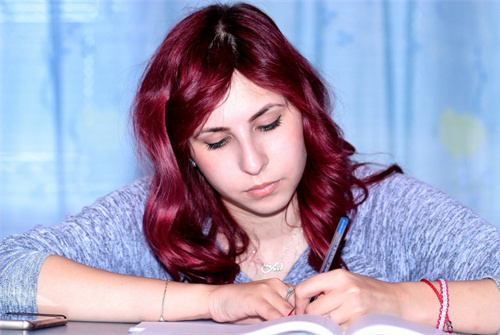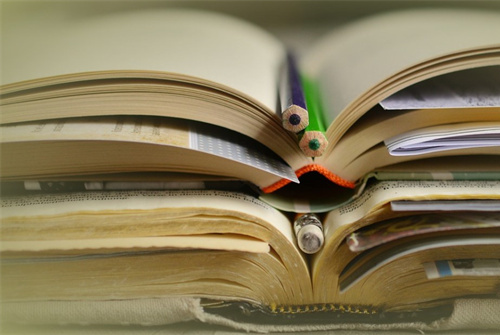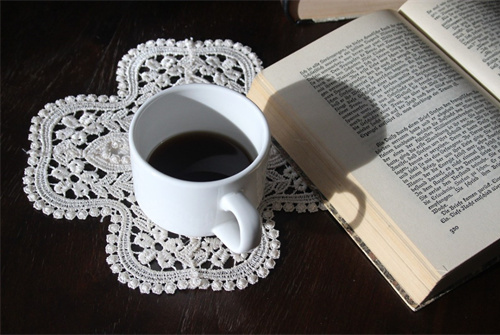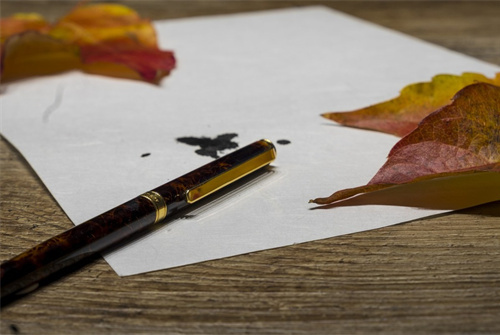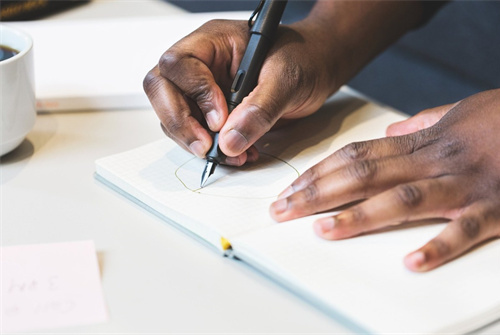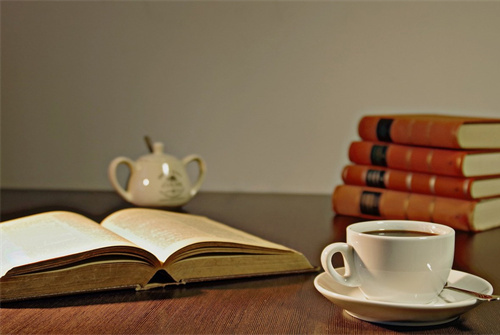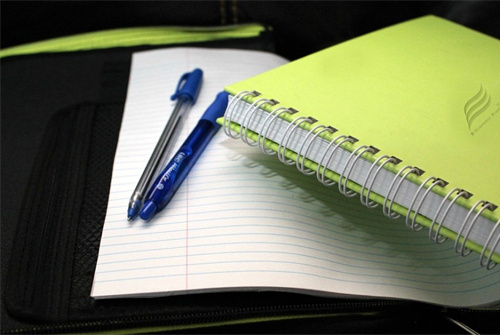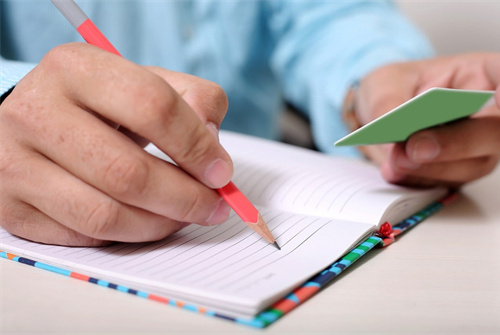【简介】感谢网友“15623”参与投稿,这里小编给大家分享一些,方便大家学习。
【第1句】:归纳牛津英语小学5
【第1句】: red orange yellow green violet blue purple, pink, black white
【第2句】:Chinese, Maths ,English, PE ,Music, Art and Craft,Computer, Politics, Biology, History
【第3句】:cold, fever, stomachache, headache,toothache, backache, heart disease, cancer, AIDS,running nose
【第4句】:head, shoulder, knee, toe,eye ,ear, mouth,tooth, nose, finger
【第5句】:Monday,Tuesday Wednesday Thursday, Friday, Saturday,Suanday
【第6句】:January February, March,April,May,June,July,August,September,October,November,December
【第7句】:square,rectangle,circle,triangle,oval
【第8句】:Spring Festival, Lantern Festival, Valentines
Day, Mother's Day ,Children's Day,Father's Day, May Day,Party's Day, Army's Day, Thanksgiving Day,
Haloween, Christmas
【第9句】:dictionary, schoolbag,computer, television, air conditioner,fridge,microwave oven,calender, calculator, printer
【第10句】:China, Japan, Russia, America, Canada, England, France, Germany, Italy, Australia
【第11句】:fly, mosquito, moth, caterpillar, butterfly
worm, ant
【第12句】: milk, chocolate,,biscuit, candy, meat, fish, vegetable,crisp, soup, hamberger
【第13句】: dog cat mouse bird tiger lion rabbit wolf fox elephant pig cow
14 apple orange lemon watermelon grapefruit durian peach banana pineapple strawberry
15 hospital library ,railway station, theater cinema airport bus station school shop restaurant
中文应该就不用说了吧,都是一些很简单的词。我不确定他全是牛津的。因为我是学新世纪的,不过我认为,这些应是5-6年级学生应掌握的词
【第2句】:牛津版五年级下册英语的重要复习知识点,跪求啊
五年级上U1: The first day at school 学习目标学习句型 How many 。
are there 。 ?学习 there be 的一般疑问句及回答方法学习本单元新单词学习音标 /ei/主要知识点●There be 句型的一般疑问句是将 is 或 are 调到 there 的前面,比如:There is some paper under the desk. ★Is there any paper under the desk? 需要注意的是,一般疑问句中的 some 要用 any 来代替。
●询问数量,不论答句是单数或复数形式(即用there is 或 there are),都用句型“How many + 名词复数+are there + 介词短语?” 来提问。例如:How many floors are there in the classroom building? (教学大楼有几层楼?)●/ei/的发音方法:【第1句】: 先发/e/,然后慢慢滑向/i/ 【第2句】: 嘴成半圆形,张得比/i:/和/i/开 【第3句】: 结束发音时,腭部慢慢抬起,嘴唇慢慢合上 【第4句】: 可以感觉到舌部肌肉紧张。
五年级上U2: A new house 学习目标There be 的否定句方位介词here is 句型主要知识点●there be 句型的否定句形式是在 be 动词后面加上 not,即:There be + not + 主语 + 其它.●方位介词:in - 在……里面 方位介词:on - 在……上面方位介词:under - 在……下面 方位介词:near - 在……旁边方位介词:behind - 在……后面●Here is/are … 意思是“这是/这些是……”。Here 后的 be 动词要根据后面名词变化。
五年级上U3: At a Music lesson 学习目标学习情态动词 can(能)学习祈使句学习疑问句 Where, Who学习音标/a:/主要知识点●用动词作为句子开头,省略了主语(You),这种类型的句子我们称它是祈使句;祈使句的动词部分都用动词原形。例如:Stop running!●“Let's = Let us” 解释是“让我们……”,它也是祈使句;例如:Let's go. Let's do homework.●can 是情态动词,这里表示“能,会”的意思,用来表示能力,后面接上动词原形,这一点同学们要记住喽。
●Where + be 动词 + 某人/物? 这个句型是用来提问某人某物在哪里,是非常常用的一个句型,同学们要记住了。要注意这里的 be 动词的形式要根据后面的名词来决定。
●对于 who 引导的对于主语提问的特殊疑问句的回答,我们直接用主语(sb.)开头,之后的语句的时态和内容和问句保持一致就可以啦。●/a:/的发音方法:【第1句】: 张大嘴巴 【第2句】: 舌身后缩,舌尖远离下齿 【第3句】: 发音时要注意长度,不要发得太短。
五年级上U4: Halloween 学习目标情态动词 need 的用法like 的用法音标/i:/的学习 主要知识点●在英语中,要表达喜欢某样东西的时候,我们用 "like" 来引导句子,注意下,我们表达喜欢某一样东西的时候,一定是喜欢这一类,因此你所用到的名词要写成复数形式(除了不可数名词)。●当 like 后面要接动词,表达喜欢做什么的时候,我们该怎么用呢?注意了,如果 like 后面接动词,我们要用 like + doing something 的形式,例如:I like playing football.(我喜欢踢足球。)
注意,动词要改成 -ing 的形态。●"Would you like …?" 表示“你想要……?”相当于 "Do you want …",这里的 like 并没有实际意思,这样表达能使语气更加委婉。
●"need" 表示需要的意思,它的实际意义和 "want" 有所不同,"want" 这个词是表达个人主观的要求,而 "need" 是表达一种客观的需求。●字母 e 在开音节单词中的发音为 /i:/,如:he, she, me。
五年级上U6: Doing housework 学习目标学习现在进行时学习现在分词学会用 can 。 ? 征求同意主要知识点现在进行时是由“ be 动词 + 动词的现在分词”组成的。
be 动词根据主语的不同,分别为 am/ is/ are, ▲当主语为 I 时,be 动词为 am。 ▲当主语为 he, she, it 或名词单数时,be 动词为 is。
当主语为 they, we, you 或名词复数时,be 动词为 are。现在进行时都要用到动词的-ing形式,即现在分词形式。
大多数动词的ing形式是 直接在动词词尾+ing。 ▲以不发音的e结尾的动词的ing形式是去掉 e 再加ing。
▲重读闭音节动词变为现在分词时,双写末尾的重读闭音节的辅音字母, 再加-ing。 ▲少数几个以 ie 结尾的单音节动词,变为现在分词时,去掉 ie 加 y, 再加 ing。
●我们用句型 Can 。? 表示……能……? 例如:Can I go home? 我能回家吗? 回答“Can I… ?”的疑问句时,我们通常用“Yes, you can. / No, you can't.” 来回答哦。
当我们用否定句回答时,后面讲出拒绝要求的理由。五年级上U7: After school 学习目标学习 be going to 的用法学习一般将来时学习音标/ai/学习现在进行时中的疑问句的用法 主要知识点●be going to 表示主观计划安排近期要做的事情时,这时主语只能是“人”。
▲be going to 句型后接动词原形,be 动词随主语的变化而变化,如果主语是 we,那么 be 动词要用 are。▲be going to 的疑问式和否定式都是在 be 动词上做变化,例如主语如果是 I,那么 be 动词就要用 am。
▲be going to + 动词原形,也可以表示根据已有迹象判断可能将要发生的事情。 ●一般将来时表示将来在某一时间将要发生的动作或状态,常与表示将来的时间状语连用,如:tomorrow, next Monday, in ten minutes, some day, in the future等。
▲般将来时的结构为: 主语 + will + 动词原形,其中当主语为第一人称时也可以表达为: I/we + shall + 动词原形。 ▲一。
【第3句】:五年级下册英语牛津版,单词,句型,还有11天开学了
上下册的都有,顺便复习上一册的PEP五年级上册四会单词词汇表Unit 1 Young (年轻的) funny (滑稽可笑的) tall (高的) strong (强壮的) kind (和蔼的、亲切的) old (年老的) short (矮的)thin (瘦的) Mr (先生) like (像、喜欢) strict (严格的) smart (聪明的、巧妙的) active (积极的、活跃的) quiet (安静的、文静的)very (很、非常) but (但是) Unit 2 Mondy (星期一) Tuesday (星期二) Wednesday (星期三) Thursday (星期四) Friday (星期五) Saturday (星期六) Sunday (星期天) day (天) have (有、吃) on (在…..时候) do homework (做作业) watch TV (看电视) read books (读书) Unit 3 eggplant (茄子) fish (鱼) green beans (青豆) tofu (豆腐) potato (土豆) tomato (西红柿) for (为) lunch (中餐) we (我们) tasty (好吃的) sweet (甜的) sour (酸的) fresh (新鲜的) salty (咸的) favourite (最喜欢的) they are (他们是) fruit (水果) grape (葡萄) Unit 4 Cook the meals (倒垃圾) water the flowers (浇花) sweep the floor (扫地) clean the bedroom (打扫卧室) make the bed (铺床) set the table (摆饭桌) wash the clothes (洗碗碟) do the dishes (收拾衣服) use a computer (使用计算机 Unit 5 curtain (空调) trash bin (垃圾箱) closet (壁橱) mirror (镜子) end table (床头柜) bedroom (卧室) kitchen (厨房) bathroom (卫生间) living room (客厅) in (在…里面) on (在…上面) under (在…下面) near (在..旁边) behind (在…后边) clothes (衣服) Unit 6 river (河流) flower (花) grass (草) lake (湖泊) forest (森林) path (路) pake (公园) picture (照片) hourse (房子) bridge (桥) tree (树) road (公路) building (建筑物) clean (干净的) PEP五年级下册四会单词词汇表 Unit 1 do morning exercises(晨练) eat breakfast(吃早饭) have english class(上英语课) play sports(进行体育运动) eat dinner(吃晚饭) when(什么时候) evening(夜晚;晚上) get up(起床) at(在……点钟) usually(通常;一般) noon(中午) climb mountains(爬山) go shopping(购物;买东西) play the piano(弹钢琴) visit grandparents(看望祖父母) go hiking(去远足) weekend(周末) often(经常) sometimes(有时候) Unit 2 spring(春天) summer(夏天) fall(秋天) winter(冬天) season季节) which(哪一个) best(最;极) swim(游泳) fly kites(放风筝) skate(滑冰;滑冰鞋) make a snowman(堆雪人) plant trees(种树) why(为什么) because(因为) sleep(睡觉) Unit 3 Jan./January(一月) Feb./February(二月) Mar./March(三月) Apr./April(四月) May(五月) June(六月) July(七月) Aug./Augest(八月) Sept./September(九月) Oct./October(十月) Nov./November(十一月) Dec./December(十二月) birthday(生日) uncle(叔叔;舅舅) her(她的) date(日期) Unit 4 draw pictures(画画) cook dinner(做饭) read a book(看书)answer the phone(接电话) mom(妈妈) listen to music9(听音乐) clean the room(打扫房间) write a letter(写信) write an e-mail(写电子邮件) grandpa(爷爷;外公) study(书房) Unit 5 fly(飞) jump(跳) walk(走) run(跑) swim(游泳) kangaroo(袋鼠) sleep(睡觉) climb(往上爬) fight(打架) swing(荡;荡秋千) drink water(喝水) Unit 6 take pictures(照相) watch insects(观察昆虫) pick up leaves(采摘树叶) do an experiment(做实验) catch butterfly(捉蝴蝶) honey(蜂蜜) count insects(数昆虫) collect leaves(收集树叶) wtite a report(写报告) play chess(下棋) have a picnic(举行野餐) PEP五年级下册四会单词词汇表 Unit 1 do morning exercises(晨练) eat breakfast(吃早饭) have english class(上英语课) play sports(进行体育运动) eat dinner(吃晚饭) when(什么时候) evening(夜晚;晚上) get up(起床) at(在……点钟) usually(通常;一般) noon(中午) climb mountains(爬山) go shopping(购物;买东西) play the piano(弹钢琴) visit grandparents(看望祖父母) go hiking(去远足) weekend(周末) often(经常) sometimes(有时候) Unit 2 spring(春天) summer(夏天) fall(秋天) winter(冬天) season季节) which(哪一个) best(最;极) swim(游泳) fly kites(放风筝) skate(滑冰;滑冰鞋) make a snowman(堆雪人) plant trees(种树) why(为什么) because(因为) sleep(睡觉) Unit 3 Jan./January(一月) Feb./February(二月) Mar./March(三月) Apr./April(四月) May(五月) June(六月) July(七月) Aug./Augest(八月) Sept./September(九月) Oct./October(十月) Nov./November(十一月) Dec./December(十二月) birthday(生。
【第4句】:【小学五年级英语,句型要点】
小学五年级英语重点句型掌握【第1句】:I like biscuits.【第2句】:I'd like a cold drink.【第3句】:Would you like some buns?【第4句】:Do you want some rice?【第5句】:This isn't my food.【第6句】:I like the green T-shirt.【第7句】:Where's my new cap?【第8句】:Who's shirt is this?【第9句】:Is this your hat?【第10句】:What's this?【第11句】:What colour is it?【第12句】:Whose is this?【第13句】:This is my brother's painting.【第14句】:I have a puppet.【第15句】:There's a car near the hospital.【第16句】:Was it in the wardrobe?【第17句】:Is there a book on the desk?【第18句】:That's not mine.。
【第5句】:小学五年级英语,句型要点
小学五年级英语重点句型掌握【第1句】:I like biscuits.【第2句】:I'd like a cold drink.【第3句】:Would you like some buns?【第4句】:Do you want some rice?【第5句】:This isn't my food.【第6句】:I like the green T-shirt.【第7句】:Where's my new cap?【第8句】:Who's shirt is this?【第9句】:Is this your hat?【第10句】:What's this?【第11句】:What colour is it?【第12句】:Whose is this?【第13句】:This is my brother's painting.【第14句】:I have a puppet.【第15句】:There's a car near the hospital.【第16句】:Was it in the wardrobe?【第17句】:Is there a book on the desk?【第18句】:That's not mine。
【第6句】:小学1
小学一-五年级英语单词及主要句型 Vocabulary and Expression Book 1 (注:黑体单词要求学生能听、说、认读;白体单词只作听、说要求。)
A a afternoon and are arm B bag ball balloon bear bird birthday black blue boat body book bread brown bye C cake can car cat chicken coffee Coke crayon D dog doll duck E ear eat eight elephant eraser eye F face fine finger five foot for four French fries friend G gift go good goodbye great green H hamburger hand happy have head hello hi hot dog how how many how old I I'm=I am is it J juice K kite L leg let's=let us like look at M may me meet milk monkey morning mouse mouth mom my N name nice nine no nose O OK one orange P paint panda pen pencil pencil-case pig pink plane purple R rabbit really red ruler S school seven sharpener six some squirrel super sure T tea ten thank thanks the this three to too two W water what white Y yellow your Z zoo Book 2 (注:黑体单词要求学生能听、说、认读;白体单词只作听、说要求。) A again A.M.(a.m.) America and animal ant apple at B back banana beautiful big bike box boy brother bus C can CAN certainly chair children class come in come on cute D dad deer desk don't = do not draw E egg eighteen eleven excuse my F family father feed fifteen fish fly fourteen fox friend from fruit funny G game giraffe girl good afternoon goodbye good morning goose grandfather grandma grandmother grandpa grape great guess H has he here here you are hmm how how many hungry I Ice ice-cream I'm = I am in J jeep jump K Kangaroo key L lamp let = let us like lion lock long look at look out lovely M man meet Miss mom more mother Mr my N nest new nice night nineteen no problem O oh on open orange P peach pear picture play p;ease P.M. PRC Q queen quiet R rain rainbow really right S see seventeen she short sister sixteen small snake so some sorry strawberry student T tail tall taste taxi teacher thanks that them thirteen this tiger today too toy TV twelve twenty U UK unbrella under USA use V vest very much violin W walkman watch watch out watermelon we welcome where who's = who is wind window woman wow Y yeah yes you your yo-yo Z zebra zoo Book 3 (注:黑体字为各单元中 Let's learn部分出现的单词,要求听、说、认读;白体字为单元中首次出现的单词,只作听、说要求;标有下划线的单词要求学生听、说、读、写。)
A all right aren't = are not aunt B baby bag baseball player bathroom bed bedroom beef board book boy bread brother C chair chicken Chinese Chinese book chopstick(s) classmate classroom clean colour come computer computer game D desk dinner doctor door driver E egg English book F family fan farmer fat father fifty fish floor food for fork forty forty-one fridge friend friend(s) G gee girl go good idea good job H has have have a look he heavy help her here here you are he's = he is hey his home hungry I I'd like = I would like in isn't = is not it's = it is K key kitchen knife L light like living room long hair look look at M many math book may me member milk mother music N name near new noodle(s) no notebook nurse O on only open our P painting parents pass pen pencil pencil-case people phone photo picture plate puppy Q quiet R ready rice right room ruler S school schoolbag science seat see she she's = she is shelf short hair show sister sofa sorry soup spoon sports story-book strong student study sure T table teacher teacher's desk thank you the they they're = they are thin thirty thirty thirty-one too many try twenty- one U use uncle V vegetable W wait wall water what what's = what is we where who window Y you young you're = you are yummy Book 4 (注:黑体字为各单元中 Let's learn部分出现的单词,要求听、说、认读;白体字为单元中首次出现的单词,只作听、说要求;标有下划线的单词要求学生听、说、读、写。) A all right a pair of apple are aren't = are not art room assistant at B banana beautiful big blue board boots breakfast but bye C can can't = can not canteen carrot cat cheap Chinese class close cloudy cold colour colourful computer computer room cool cow cucumber D dog dinner donkey dress duck E eight eleven English English class expensive F fan farm farmer fat fifteen first five floor for football four fresh G garden get up go home go to bed go to school go to the playgroud goat green gym H have to hello help hen hi horse hot how many how much hundred hurry I I is it it's = it is J jacket jeans just a minute K kid L lamb let's = let us library light long lunch M many math matter music music class music room my N nighbour New York nine ninety-nine no not not much now O …o'clock one onion 。
【第7句】:五上英语重点句子
PEP五年级上册重点句子 人教版的啊
【第1句】: --- Who's your English teacher?
--- Mr. Carter.
【第2句】: --- What's he like?
--- He's tall and strong.
【第3句】: --- Is she quiet?
--- No, she isn't. She is very active.
【第4句】: --- Is she strict?
--- Yes, she is, but she's very kind.
【第5句】: --- What day is it today?
--- It's Wednesday.
【第6句】: --- What do you have on Thursdays?
--- We have English, math and science on Thursdays.
【第7句】: --- What do you do on Saturdays?
--- I watch TV on Saturdays.
【第8句】: --- What about you?
--- I do my homework.
【第9句】: --- What do you have for lunch on Mondays?
--- We have tomatoes, tofu and fish.
【第10句】: --- What's your favourite fruit?
--- They're sweet.
【第11句】: I like fruit. But I don't grapes. They're sour.
【第12句】: --- What can you do?
--- I can sweep the floor. / I can cook the meals. / I can water the flowers.
【第13句】: --- Can you make the bed?
--- No, I can't.
【第14句】: --- Can you use a computer?
--- Yes, I can.
【第15句】: There are two bedrooms, a kitchen, a bathroom and a living room.
【第16句】: There is a mirror, a bed and a big closet.
【第17句】: The closet is near the table. Many clothes are in the closet.
【第18句】: The trash bin is behind the door.
【第19句】: --- Is there a forest in the park?
--- Yes, there is.
【第20句】: --- Is there a river?
--- No, there isn't.
【第21句】: --- Are there any pandas in the mountains?
--- No, there aren't.
【第22句】: --- Are there any fish in the rivers?
--- Yes, there are.
望采纳O(∩_∩)O
【第8句】:小学1
小学一-五年级英语单词及主要句型 Vocabulary and ExpressionBook 1 (注:黑体单词要求学生能听、说、认读;白体单词只作听、说要求。)
A a afternoon and are armB bag ball balloon bear bird birthday black blue boat body book bread brown byeC cake can car cat chicken coffee Coke crayonD dog doll duck Eear eat eight elephant eraser eyeFface fine finger five foot for four French fries friendGgift go good goodbye great greenHhamburger hand happy have head hello hi hot dog how how many how oldII'm=I am is it J juice KkiteLleg let's=let us like look at Mmay me meet milk monkey morning mouse mouth mom my Nname nice nine no nose OOK one orangePpaint panda pen pencil pencil-case pig pink plane purpleRrabbit really red rulerSschool seven sharpener six some squirrel super sureTtea ten thank thanks the this three to too two Wwater what white Yyellow yourZzooBook 2(注:黑体单词要求学生能听、说、认读;白体单词只作听、说要求。)Aagain A.M.(a.m.) America and animal ant apple atBback banana beautiful big bike box boy brother bus Ccan CAN certainly chair children class come in come on cute Ddad deer desk don't = do not draw Eegg eighteen eleven excuse my Ffamily father feed fifteen fish fly fourteen fox friend from fruit funnyGgame giraffe girl good afternoon goodbye good morning goose grandfather grandma grandmother grandpa grape great guessH has he here here you are hmm how how many hungry IIce ice-cream I'm = I am in Jjeep jumpKKangaroo key Llamp let = let us like lion lock long look at look out lovely M man meet Miss mom more mother Mr my Nnest new nice night nineteen no problem Ooh on open orange Ppeach pear picture play p;ease P.M. PRCQqueen quietRrain rainbow really right Ssee seventeen she short sister sixteen small snake so some sorry strawberry student Ttail tall taste taxi teacher thanks that them thirteen this tiger today too toy TV twelve twentyUUK unbrella under USA useVvest very much violin Wwalkman watch watch out watermelon we welcome where who's = who is wind window woman wowY yeah yes you your yo-yo Zzebra zooBook 3(注:黑体字为各单元中 Let's learn部分出现的单词,要求听、说、认读;白体字为单元中首次出现的单词,只作听、说要求;标有下划线的单词要求学生听、说、读、写。)
A all right aren't = are not aunt Bbaby bag baseball player bathroom bed bedroom beef board book boy bread brother Cchair chicken Chinese Chinese book chopstick(s) classmate classroom clean colour come computer computer gameDdesk dinner doctor door driverEegg English bookFfamily fan farmer fat father fifty fish floor food for fork forty forty-one fridge friend friend(s)Ggee girl go good idea good jobHhas have have a look he heavy help her here here you are he's = he is hey his home hungryII'd like = I would like in isn't = is not it's = it is Kkey kitchen knifeLlight like living room long hair look look atMmany math book may me member milk mother musicNname near new noodle(s) no notebook nurse Oon only open ourPpainting parents pass pen pencil pencil-case people phone photo picture plate puppy QquietRready rice right room ruler Sschool schoolbag science seat see she she's = she is shelf short hair show sister sofa sorry soup spoon sports story-book strong student study sure Ttable teacher teacher's desk thank you the they they're = they are thin thirty thirty thirty-one too many try twenty- one Uuse uncle VvegetableWwait wall water what what's = what is we where who windowYyou young you're = you are yummyBook 4 (注:黑体字为各单元中 Let's learn部分出现的单词,要求听、说、认读;白体字为单元中首次出现的单词,只作听、说要求;标有下划线的单词要求学生听、说、读、写。)Aall right a pair of apple are aren't = are not art room assistant at Bbanana beautiful big blue board boots breakfast but bye Ccan can't = can not canteen carrot cat cheap Chinese class close cloudy cold colour colourful computer computer room cool cow cucumberDdog dinner donkey dress duckEeight eleven English English class expensive Ffan farm farmer fat fifteen first five floor for football four fresh Ggarden get up go home go to bed go to school go to the playgroud goat green gymHhave to hello help hen hi horse hot how many how much hundred hurryII is it it's = it isJjacket jeans just a minute Kkid Llamb let's = let us library light long lunch Mmany math matter music music class music room myNnighbour New York nine ninety-nine no not not much now O…o'clock one onion orange our over Ppair pants P.E. pear P.E.class picture 。
